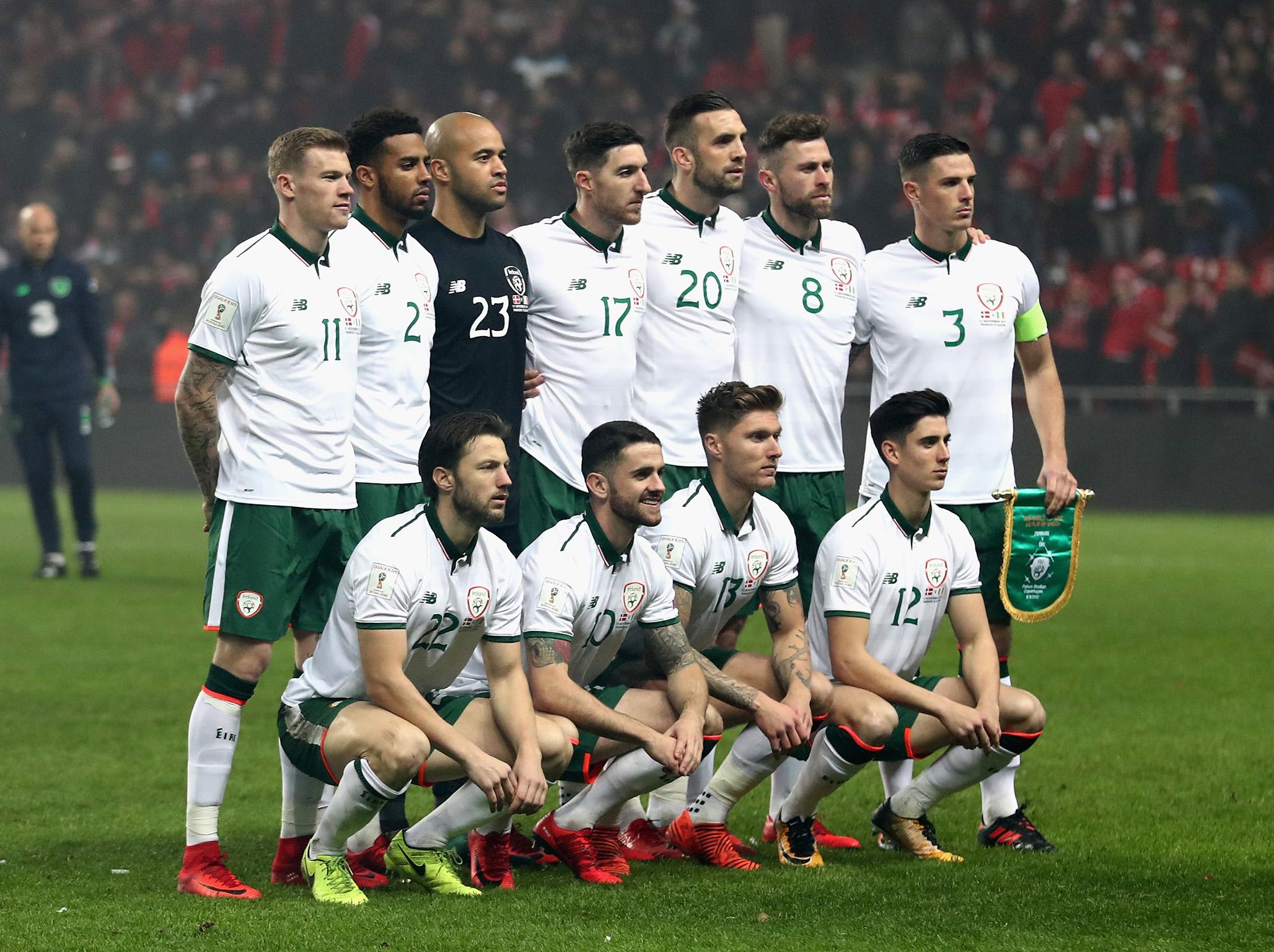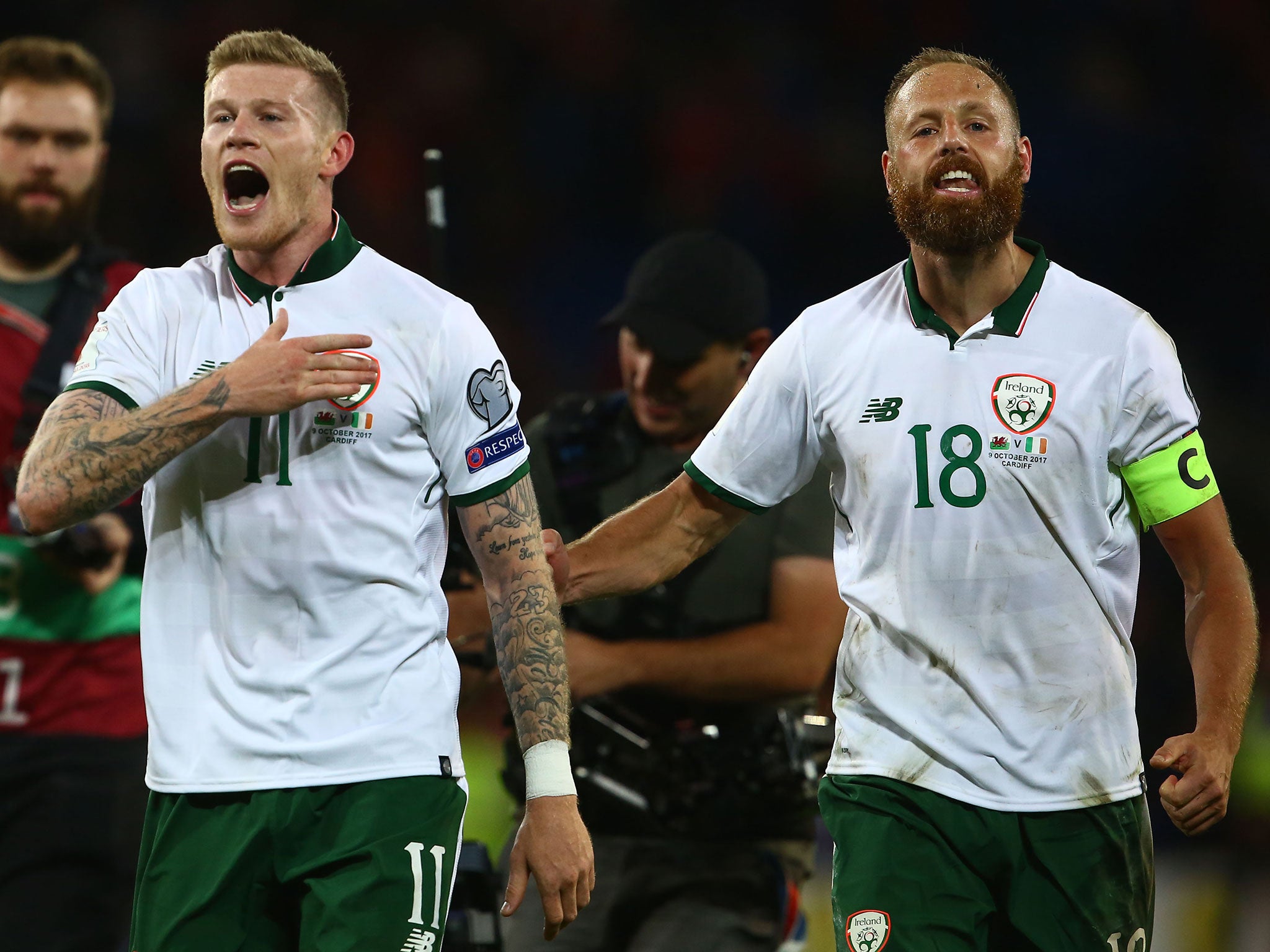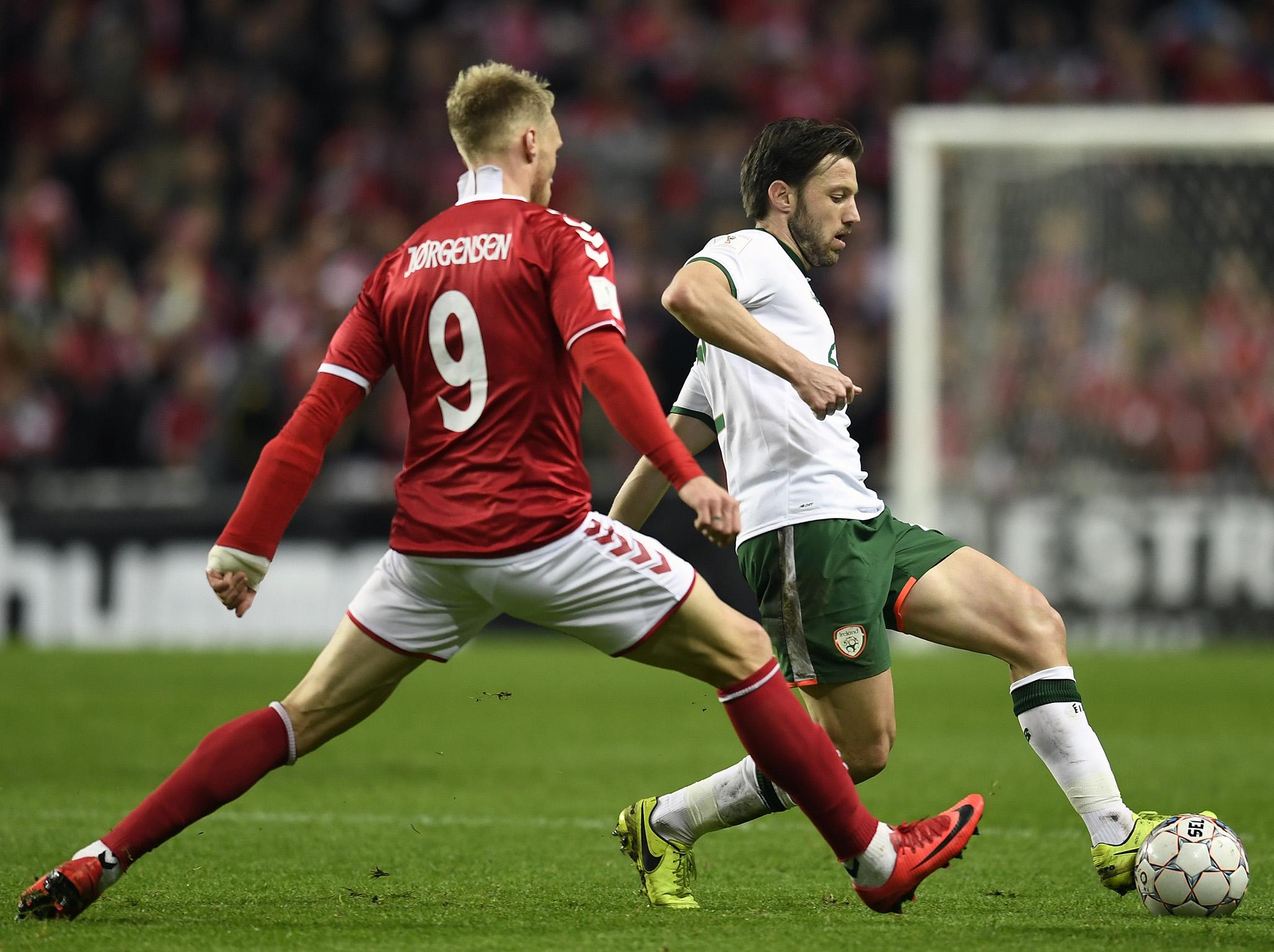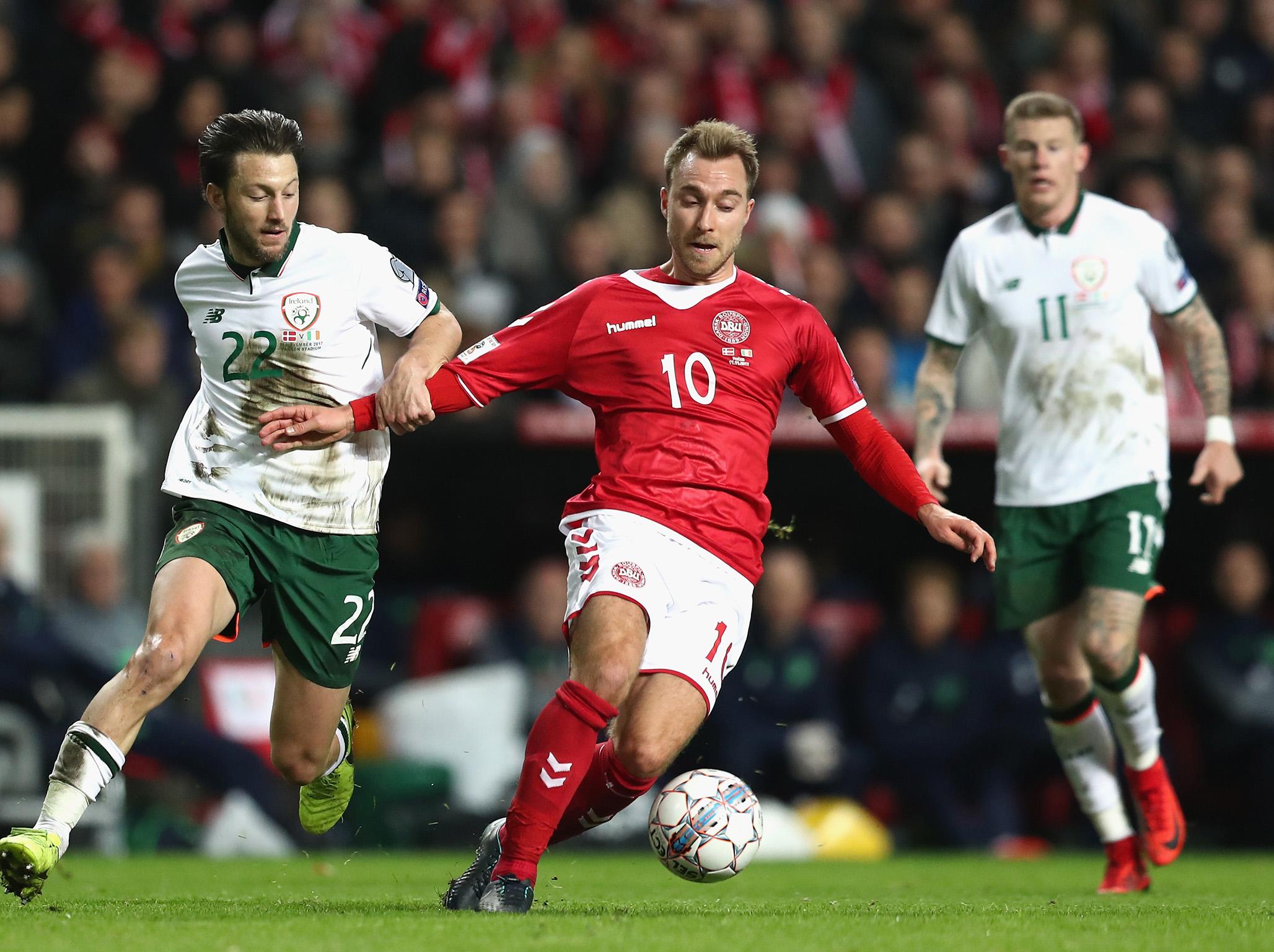World Cup play-off: Glorious chaos and hectic and heroic desperation, Ireland and Denmark are 90 mins from history
Both teams know they that this one match is what four years comes right down to, and maybe entire careers: a mere 90 minutes from history, and hysterical emotion

Your support helps us to tell the story
From reproductive rights to climate change to Big Tech, The Independent is on the ground when the story is developing. Whether it's investigating the financials of Elon Musk's pro-Trump PAC or producing our latest documentary, 'The A Word', which shines a light on the American women fighting for reproductive rights, we know how important it is to parse out the facts from the messaging.
At such a critical moment in US history, we need reporters on the ground. Your donation allows us to keep sending journalists to speak to both sides of the story.
The Independent is trusted by Americans across the entire political spectrum. And unlike many other quality news outlets, we choose not to lock Americans out of our reporting and analysis with paywalls. We believe quality journalism should be available to everyone, paid for by those who can afford it.
Your support makes all the difference.For all the cynicism and oversized influence of money on modern football, there is ironically nothing that brings it down to its purest emotions - to the joyous reasons that people first fell in love with the sport - than its most overblown and marketed competition. Many fans measure their lives by World Cups. Many media measure the game’s history by it. Many players still measure their careers by it.
Ireland’s David Meyler brought a bit of all of this into it, as he spoke about how his country stands on the brink of their first World Cup in 16 years, a mere 90 minutes from this kind of history.
“This is the stuff you dream of as a kid,” the 28-year-old said. “I’ve memories of the ’94 World Cup and running around the house at home. Being 90 mins away from qualifying for the World Cup is huge. Looking back, the sacrifices I had to go through to give me this opportunity is huge. We all want to qualify. We’ll do everything in our power to make sure we do.”
If the temptation is to think that this is something that will these days mean more to players like Meyler who are at clubs like Hull City, it was so telling that an evolving elite star like Christian Eriksen was thinking the exact same as him.
“Every player wants to send their country to a World Cup,” the Dane said. “It is the biggest thing you can achieve.”
This is what it means, this is how special it is.
This is also exactly why there was so much talk about “fight” in the build-up to Ireland’s play-off second leg with Denmark in Dublin on Tuesday, and not just because Eriksen’s star quality essentially represents the only difference between two mostly functional sides after their first-leg 0-0.
It is because it will mean so much to the players that they won’t be able to help themselves offering that extra intensity to every on-pitch interaction. This is why so many of these matches see such glorious chaos by the end, such hectic and heroic desperation, because there is so much riding on it - a status that only presents an opportunity to be grasped every four years. These play-offs are one time when the occasion really does fire the game, when the team can’t help playing that occasion.
All the talk of seizing that occasion takes a deeper meaning for this specific play-off because of how Ireland’s refusal to seize the initiative in Copenhagen has influenced this second leg. They may have kept a strong foothold in the tie with their tenaciously defensive first-leg display, but the big question now is whether that creates a big problem and dilemma for them in Dublin. A team so apparently best suited to sitting deep - at least according to manager Martin O’Neill - now has to step up to get the goal that will take them through, but that alone could leave them susceptible to the very away goal that knocks them out.

It is little wonder so many of the Danish camp have been playing on this. Nicklas Bendtner spoke about how Ireland now have to do more than “just kick the ball away and hope to hit a player” and “defend with their lives”.
“They know that they can’t play a match where they have to stay so deep,” the former Arsenal striker said. “They know they have to come out and try to score. They can’t play a game of that importance for zero-zero. It’s not possible.”
Manager Aage Hareide meanwhile maybe somewhat mischievously spoke about how the pattern of their play means it is impossible for them to change.
“If you look at the stats, nothing seems to go in that direction, they played better away from home and scored more away: 2-2 with Serbia, and winning in Wales [1-0] those are the key matches. I don’t expect them to go higher. They just want us to make the mistake. I don’t have the patience for that.”

Eriksen was meanwhile one of many Danes to so pointedly talk about the “big hit” of an away goal, to leave it there occupying Irish minds.
For their part, O’Neill and his squad were already well conscious of this. Having literally just got the 0-0 draw he said he would have been content with before the first keg, he was already speaking about how he expected Ireland would need two in Dublin.
“I think we have to score a couple of goals. I really think that is the case. I think holding Denmark out for two matches is going to be very difficult. We have to bear that in mind. Our mindset is we want to create and, two, we better score.”
Since everyone knows how Denmark will play, and that they will try to get on the front foot, the onus will then be on Ireland. The exact challenge will also be to maintain a similar level of solidity, but also while offering more of a threat.

That will require a tough balance, as well as a perfect levels of concentration and controlled assertiveness to strike. It was something that Shane Duffy touched on.
“We’ve got to concentrate and that’s what we’ll do. When our time is to score, that will be, we’ve just got to take it easy and see what happens. You can’t get ahead of yourselves and go all guns blazing and lose the match early on and chase it down.”
And this is where the extra electrical charge of the occasion really comes in, the fire brought from the stakes of the fixture, the “fight”.
It was so conspicuous that Denmark’s main message from their pre-match press conference was that they would be capable of matching Ireland in battle.
“We have the fight to match them,” centre-half Andreas Bjelland said. “We will fight with them if they want to fight.”
This is something so worth fighting for, an opportunity that for once justifies bringing it all down to such base talk, because it is so driven by pure emotion.
This is what is what four years comes right down to, and maybe entire careers: a mere 90 minutes from history, and hysterical emotion.
Join our commenting forum
Join thought-provoking conversations, follow other Independent readers and see their replies
Comments